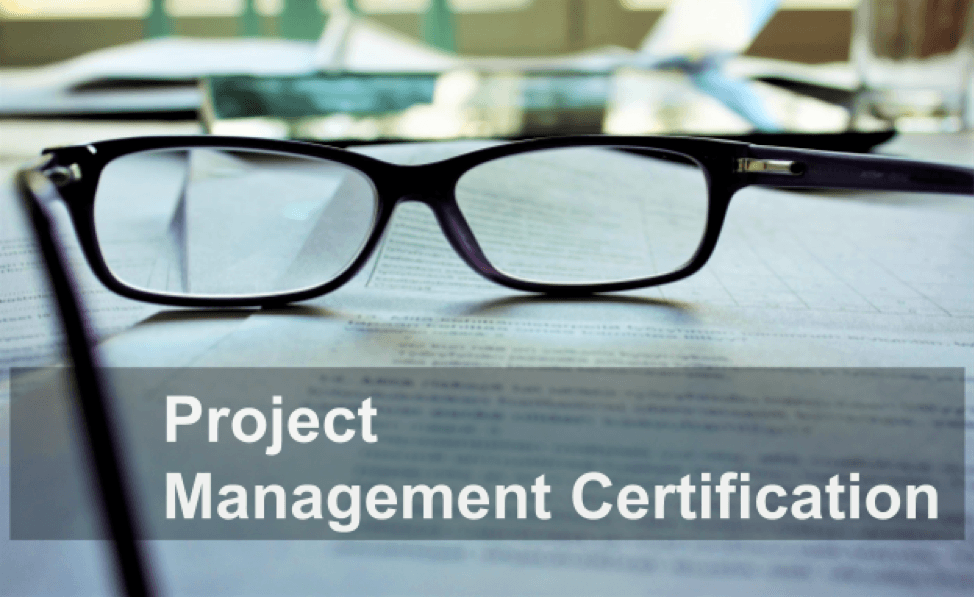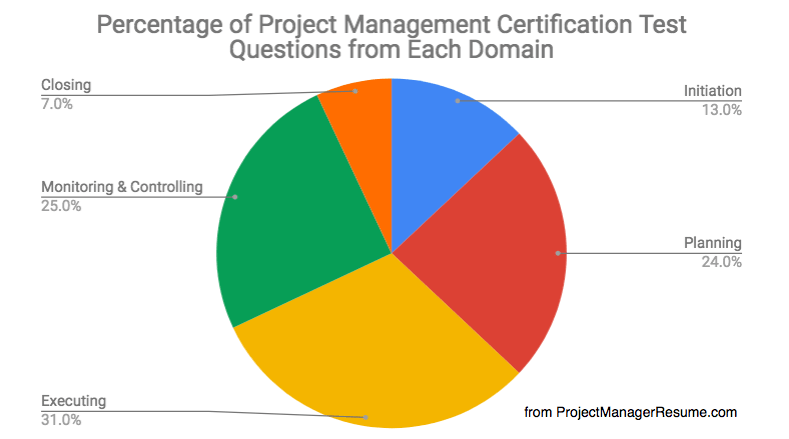Project Management Certification 101 – The Basics

You’ve been working as a project manager for several years and now want to earn a project management certification. So, how do you go about it?
For most practitioners, this means earning the Project Management Professional (PMP) certification. Offered by the Project Management Institute (PMI), the PMP certification demonstrates to employers that you’re well versed in all phases of project management from initial planning to the final after-action review. It also means you speak a common language and share a body of knowledge with other PMPs. In addition, you can command a higher salary as recent statistics show certified PMPs on average earn over twenty percent more than their counterparts without one.
The PMP certification process is rigorous, and the facts outlined below are what you need to know to determine if this is the right choice for you at this point in your career.
What is Project Management Professional Certification?
PMI was founded in 1969 to professionalize and standardize project management, allow for the exchange of knowledge, develop a common terminology, and design curriculum for training and education. To aid these efforts, PMI began offering the PMP certification in 1984. Since the first exam was administered with forty-three people passing it, recent figures show there are over 800,000 certified PMPs worldwide. You do not have to join PMI to take the exam; however, you will receive a substantial discount on the exam price if you are a member.
The PMP exam covers information from the PMI publication A Guide to the Project Management Body of Knowledge, also known as the PMBOK Guide. First published in 1996, the guide defines project management, identifies project management theories and outlines the project management life cycle. Subsequent editions have incorporated newer project management tools and ideas that have become widely accepted such as agile management principles.
The PMBOK Guide identifies five process groups, which make up a project’s life cycle:
- Initiating: define a new project and receive approval to begin
- Planning: identify project scope, objectives and course of action
- Executing: complete deliverables as per project specifications
- Monitoring and Controlling: observe processes and initiate changes when necessary
- Closing: finalize all activities to formally complete a project
Additionally, the PMBOK® Guide identifies ten project management knowledge areas related to one or more of the process groups listed above:
- Integration
- Scope
- Scheduling
- Cost
- Quality
- Resources
- Communications
- Risk
- Procurement
- Stakeholders
PMP Eligibility Requirements
To take the PMP exam, you must have a documented history of project management and meet one of the two following sets of prerequisites:
- Secondary degree (high school diploma, associate degree or global equivalent); 7,500 hours of project management; and 35 hours of project management education
- Four-year degree; 4,500 hours of project management; and 35 hours of project management education
If you don’t yet meet these requirements, you might consider the Certified Associate in Project Management (CAPM) certification, which is often seen as a step toward the PMP. It requires either 23 hours of project management education or a secondary degree plus 1,500 hours of project management experience.
Taking the PMP Exam
Once your application to take the PMP exam is approved, you’ll be issued a PMI Eligibility ID to register for and schedule an exam. Exams are administered at Prometric’s testing locations. Prometric proctors exams for multiple organizations. Not all tests are available at each office, so make sure you find one that offers the PMI exam.
If you cancel or reschedule your test within thirty days before taking it, you’ll pay a penalty. If you cancel within three days of the test, you forfeit all registration fees. Unless you request a pen-and-paper exam or require special accommodations, tests are done on computers, and you will know your score upon completion.
You have up to four hours to complete the PMP exam, which consists of 200 multiple-choice questions. Of these, 175 are scored. The other 25 are preliminary pretest versions of questions, and these randomly distributed questions do not count toward your score.

Test content is divided into five “domains” based on the life cycle of a project and is the same as the process groups in the PMBOK Guide. Questions are not, however, distributed evenly among these five subject areas:
- Initiation (13 percent)
- Planning (24 percent)
- Executing (31 percent)
- Monitoring and Controlling (25 percent)
- Closing (7 percent)
The determination of a passing score is somewhat fluid. In the past, answering 61 percent of the questions correctly was considered passing. On current tests, though, a psychometric scoring analysis is also incorporated. That is, both the number of correctly answered questions and which correctly answered questions from each domain determine a person’s score.
Other Project Management Certifications
As previously mentioned, the PMP is usually the go-to certification, but other PM certifications are well worth checking into depending on your credentials, education and experience.
Certified Associate in Project Management (CAPM): As noted above, this is the starter version of the PMP, and if you have twenty-three hours of project management education, you may take the CAPM exam without having any formal project management experience.
Certified Scrum Professional (CSP): Although no exam required, CSP, offered by Scrum Alliance, is more about obtaining credentials. To be eligible, PMs must already be credentialed in one of two of Alliance’s other credentialed programs: the Advanced Certified Scrum Product Owner (A-CSPOSM) and the Advanced Certified ScrumMaster (A-CSMSM). Prospective CSPs complete approved educational training and have at least two years’ experience related to an A-CSPO or A-CSM.
Project+: This certificate is offered by CompTIA and geared toward professionals who manage smaller, less complex projects or work on project teams. Unlike the CSP, this is an exam and also unlike the CSP, CompTIA claims that their certification covers more than one approach to managing projects. No prerequisites are needed, and the exam is 90 minutes and costs around $300.
PRINCE2 Practitioner: Hailing from the UK, the PRINCE2 method is used internationally, and the Practitioner certification works well across all industries from IT to construction. Prior certification is required to take the exam. Some of those certifications are the PMP; CAPM; IPMA Level A, B, C or D; and PRINCE2 Foundation. The exam is 150 minutes with 68 questions and can be taken online.
PRINCE2 Agile: To take this exam, certification in PRINCE2 Practitioner is required and the successful completion of PRINCE2 Agile courses. PRINCE2 Agile focuses on project management flexibility within a PRINCE2 environment. The exam is 150 minutes with 50 questions and is open book if the official guide to PRINCE2 Agile is used.
IPMA (Level C): The International Project Management Association (IPMA) has 4 levels of certificates with varying degrees of difficulty and focus. Level C is tailored toward project managers. Three years of project manager experience managing a project with mid-level complexity or assisting a project manager in a complex project is required.
If you have some serious project management experience under your belt and are primed to take your abilities and opportunities to the next level, a project management certification can be your gateway to success.
